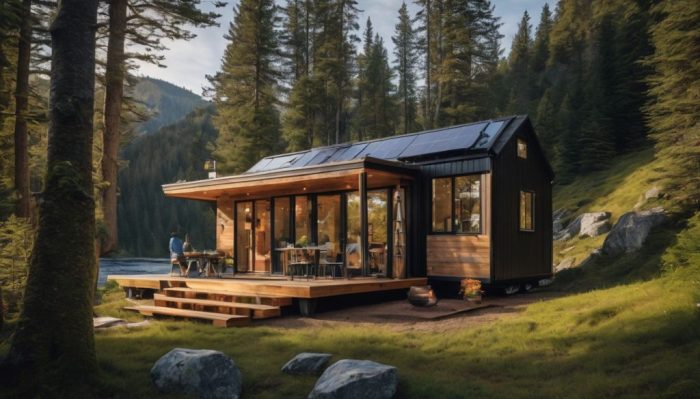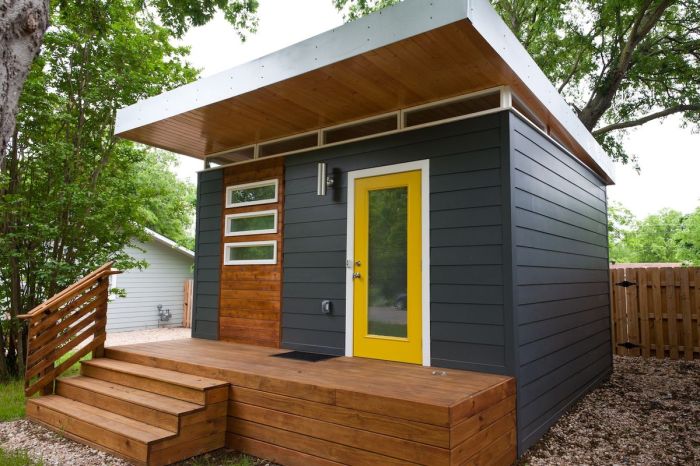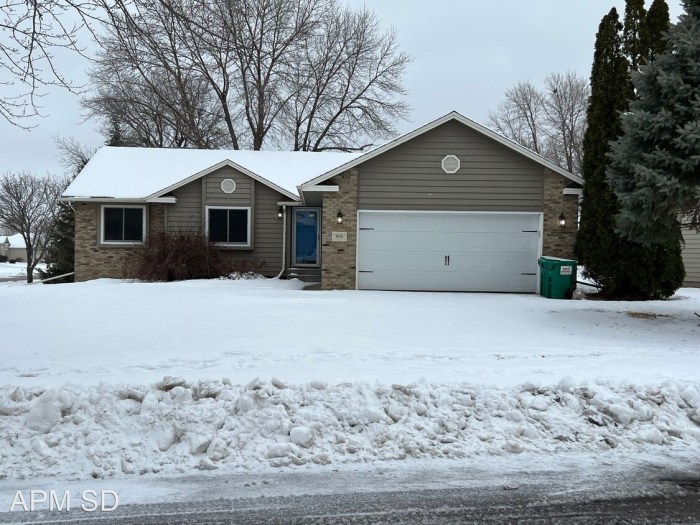The Rent-to-Own Tiny House Market: Rent To Own Tiny House
Rent to own tiny house – The rent-to-own (RTO) market for tiny houses is a burgeoning sector in the real estate landscape, offering an alternative pathway to homeownership for individuals seeking a smaller, more affordable living option. This market, while still relatively niche, demonstrates significant growth potential, driven by increasing housing costs and a rising interest in sustainable and minimalist living.
Tiny House Market Overview
Current market trends indicate a strong demand for rent-to-own tiny houses, particularly among younger generations and individuals seeking financial flexibility. Geographical distribution is currently concentrated in areas with a high cost of living and a growing acceptance of alternative housing models, such as coastal regions of California, parts of the Pacific Northwest, and select areas in the Southeast. While data is limited due to the market’s nascent stage, average rental rates for tiny houses are generally lower than those for traditional homes, but the overall purchase price can still vary greatly depending on size, location, and features.
A direct comparison of rental rates is challenging due to data scarcity. However, anecdotal evidence suggests tiny house rentals can range from $500 to $1500 per month, significantly less than average rents for traditional homes in comparable areas. This difference is largely attributed to the smaller size and often simpler construction of tiny houses.
| Location | Size (sq ft) | Rent (monthly) | Purchase Price |
|---|---|---|---|
| Portland, OR | 250 | $800 – $1200 | $40,000 – $60,000 |
| Asheville, NC | 300 | $700 – $1000 | $50,000 – $70,000 |
| San Diego, CA | 200 | $1000 – $1500 | $60,000 – $80,000 |
| Austin, TX | 280 | $900 – $1300 | $55,000 – $75,000 |
Financial Aspects of Rent-to-Own Tiny Houses

Source: co.uk
Rent-to-own contracts for tiny houses typically involve a monthly rent payment that includes a portion applied towards the eventual purchase price. The specific terms, including the length of the agreement, the percentage of rent applied to the purchase price, and any associated fees, are negotiable and vary greatly depending on the seller and the buyer’s circumstances.
Payment plans can range from simple rent-to-own agreements where a fixed portion of the monthly rent is applied to the purchase price to more complex plans involving a significant down payment upfront and smaller monthly payments. Costs associated with these plans include the monthly rent, potential interest charges (if applicable), property taxes, and insurance.
Tax implications can be complex and vary by jurisdiction. A portion of the monthly rent payments may be tax-deductible as rent, while the portion applied to the purchase price may be considered a down payment and not tax-deductible until the property is fully purchased. It is crucial to consult with a tax professional to understand the specific implications in your area.
A sample rent-to-own agreement would include clauses specifying the monthly rent, the portion applied towards the purchase price, the length of the agreement, the purchase price, the responsibilities of both the buyer and seller regarding maintenance and repairs, and a detailed process for resolving disputes.
Legal and Regulatory Considerations
Legal implications of rent-to-own agreements for tiny houses are similar to those for traditional homes, but unique challenges arise due to the smaller size and often non-traditional construction methods. Buyers should be aware of potential pitfalls such as unclear contract terms, inadequate property disclosures, and zoning restrictions. It’s vital to have a lawyer review any contract before signing.
Zoning regulations and building codes vary widely by location and may not always accommodate tiny houses. Some areas may have specific ordinances regarding minimum lot sizes or building requirements that could restrict the placement of a tiny house. Buyers should research local regulations thoroughly before purchasing or renting a tiny house.
- Consult a real estate attorney specializing in tiny houses or alternative housing.
- Review local zoning ordinances and building codes.
- Ensure the contract is clear, comprehensive, and protects your interests.
Lifestyle and Practical Considerations

Source: com.au
Living in a tiny house offers several advantages, including lower living costs, reduced environmental impact, and increased mobility. However, it also presents challenges, such as limited living space, potential difficulties with storage, and the need for creative solutions for managing daily life in a smaller space. Compared to traditional homes, tiny houses offer significantly less space but often feature thoughtful design elements that maximize functionality.
Maximizing space requires careful planning and organization. Multifunctional furniture, clever storage solutions, and a minimalist approach to belongings are essential for comfortable living.
- Comfortable bed
- Efficient kitchen appliances
- Multifunctional furniture (sofa bed, storage ottomans)
- Adequate lighting
- Efficient storage solutions
Finding and Evaluating Rent-to-Own Opportunities
Locating rent-to-own tiny house listings can be done through online classifieds, real estate websites specializing in alternative housing, and networking within tiny house communities. Evaluating the condition and value requires a thorough inspection, paying attention to the structural integrity, plumbing, electrical systems, and overall condition of the house.
Negotiating favorable terms involves understanding the market value of comparable tiny houses, carefully reviewing the contract terms, and seeking professional advice when needed. A checklist for inspecting a potential rent-to-own tiny house should include checking the foundation, roof, walls, windows, plumbing, electrical systems, appliances, and overall condition.
Illustrative Examples of Rent-to-Own Tiny Houses, Rent to own tiny house
Scenario 1: A 240 sq ft tiny house in rural Oregon, rented for $700/month with $300 applied towards a $45,000 purchase price, estimated ownership in 2 years. Features include a loft bedroom, full kitchen, and composting toilet.
Scenario 2: A 300 sq ft custom-built tiny house in Austin, TX, rented for $1200/month with $500 applied towards a $70,000 purchase price, estimated ownership in 3 years. Features include a full bathroom, solar panels, and a large deck.
Scenario 3: A 200 sq ft renovated tiny house on wheels in coastal California, rented for $1000/month with $400 applied towards a $60,000 purchase price, estimated ownership in 2.5 years. Features include a small but functional kitchen, a Murphy bed, and ample storage.
Considering a rent-to-own tiny house offers a unique pathway to homeownership, bypassing the often-daunting initial down payment. However, if that feels too ambitious right now, exploring more traditional rental options might be a better starting point. For instance, you could check out available properties by searching for a “rent house in seattle” on sites like rent house in seattle , allowing you to save for a down payment on your dream tiny home later.
This approach lets you gain financial stability before committing to a significant purchase like a tiny house.
FAQ Overview
What credit score is typically required for a rent-to-own tiny house agreement?
Credit score requirements vary greatly depending on the seller and lender. Some may require a higher score than traditional mortgages, while others may be more flexible. It’s best to check with individual sellers or lenders for specific requirements.
Can I use a rent-to-own agreement for a tiny house on wheels?
Yes, but the legal and logistical aspects become more complex. Land ownership and zoning regulations for mobile homes or tiny houses on wheels differ significantly from traditional properties, requiring careful consideration of the legal framework before entering an agreement.
What happens if I can’t complete the purchase at the end of the rent-to-own term?
The contract should clearly Artikel the consequences of defaulting on the purchase. This typically involves forfeiting accumulated rent payments and relinquishing possession of the tiny house. Specific terms vary greatly, so review the contract carefully.
Are there any tax advantages to rent-to-own arrangements for tiny houses?
Tax implications are complex and depend on local and national regulations. Consult a tax professional to determine any potential tax benefits or drawbacks specific to your situation and location.


